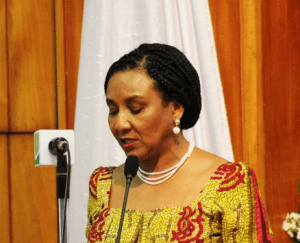Ghana requires $1.2b investment yearly to meet power needs – Minister

Ghana seems to be literally groping in the dark, as the country’s power crisis is deepening, despite several announcements and promises by government to resolve the ongoing energy crisis which has come to be known as ‘dumsor’. Recent events show that the government has been unable to fulfill its obligation to the West Africa Gas Pipeline for the provision of gas to power plants to keep the lights on.
To meet the energy needs, Ghana requires annual investments of $1.2 billion for the next 10 years, the Deputy Minister of Finance, Ms. Mona Quartey has said in a speech read on her behalf at a forum to sensitize Civil Society Organizations (CSOs) on the government’s efforts at leveraging Public-Private Partnerships to meet the country’s infrastructure needs.
Citing the Africa Infrastructure Country Diagnostic (AICD), the deputy Minister said to address Ghana’s infrastructure deficit will require sustained spending of at least $1.5 billion annually over the next decade.
“For the next decade, the government of Ghana requires on average an amount of $307 million annually in order to provide the needed infrastructure in the transport sector. The power sector also requires averagely an amount of $1.255 billion for the needed power for an accelerated development,” she said.
She indicated that the country needs average government spending of about $435 million annually to provide water and sanitation needs of the people, adding that Ghana’s housing deficit requires the building of a minimum 170,000 housing units every year for the next 10 years to close the housing deficit.
The World Bank reclassified the economic status of Ghana as middle income on July 1, 2011.
According to the Bank, Ghana was reclassified from a lower income to a low-middle income country. The Bank’s classification therefore means Ghana becomes one of the developing countries of the world where average per capita income ranges between $1,006 to $3,975.
As middle income country therefore, Ghana has become ineligible for concessional loans, which are often given without any interest. Now the country has to borrow from the competitive money market.
Before the country was declared middle-income, 42 per cent of the national budget was made up of Overseas Development Assistance (ODA), which has dwindled since.
In 2013, the International Monetary Fund (IMF) said that Ghana’s economy is at what it calls a critical stage of development.
In a 113-page report published late June 2013, the IMF said despite Ghana reaching a lower middle-income status, the economy still relies heavily on agriculture and natural resources and most jobs are in the informal sector.
According to the IMF staff report, Ghana’s concentration of exports on gold, cocoa and oil makes the economy “vulnerable to terms-of-trade shocks”.
Meanwhile, the World Bank has a new Country Partnership Strategy (CPS) with Ghana in which it will support the country’s economy with $1.2 billion for the next four years. The CPS, which was unveiled by the Bank in Accra, March 27, 2013 has the objective of consolidating Ghana’s middle income status.
The country itself has established the Ghana Infrastructure Investment Fund (GIIF), following the passing of the GIIF Act 2014 and a Board was set up in February 2015.
Raising money is getting harder for the country. The IMF has classified Ghana as “high risk of debt distress” under a new debt sustainability analyses, just when it approved a $918 million three-year Extended Credit Facility for the country on April 3, 2015.
“Countries classified as high risk are allowed to borrow on non-concessionnal terms only under exceptional circumstances. This will be one of the first tests of the implementation of the new debt limits policy,” the IMF said.
According to figures from the Bank of Ghana, the country’s total debt stock now stands at GH¢94.5 billion, representing 70.9 per cent of GDP.
In search of money, the country recently issued a $1 billion eurobond at 10.75 per cent interest over 15 years.
The country however, has been advised to invest these funds into productive ventures, or else it would not benefit meaningfully, except to keep racking up more debt.
During the forum with CSOs in Accra October 21, 2015, which discussed extensively, Ghana’s infrastructure needs and how much would be required to address the needs, nothing was said about the Infrastructure Fund. Instead, the government is seeking to leverage Public-Private Partnerships to meet the country’s infrastructure needs.
By Emmanuel K. Dogbevi
Copyright © 2015 by Creative Imaginations Publicity
All rights reserved. This piece or any portion thereof may not be reproduced or used in any manner whatsoever without the express written permission of the publisher except for the use of brief quotations in reviews.
